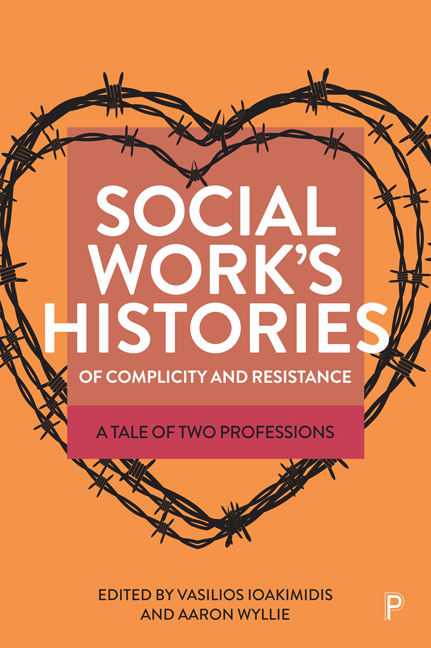Book contents
- Frontmatter
- Contents
- Notes on contributors
- Acknowledgements
- Preface
- Part I Making amends with the past
- Part II Legacies of colonialism and racism in social work
- Part III Social work’s contested ideologies
- Part IV Social work’s complicity with institutionalisation and detention
- Part V Survivor perspectives and contemporary reflections
- Index
12 - A refugee crisis or a crisis of anti-immigrant politics? Hostile refugee reception, the pandemic and new solidarities in Cyprus
Published online by Cambridge University Press: 20 January 2024
- Frontmatter
- Contents
- Notes on contributors
- Acknowledgements
- Preface
- Part I Making amends with the past
- Part II Legacies of colonialism and racism in social work
- Part III Social work’s contested ideologies
- Part IV Social work’s complicity with institutionalisation and detention
- Part V Survivor perspectives and contemporary reflections
- Index
Summary
Introduction
This chapter examines the challenges for social work ‘from below’ when states do not meet basic needs in protecting refugees and asylum-seekers, or when states choose to neglect or even expel them, generating a racialised hostile environment. Focusing on Cyprus, the chapter examines how the processes of the long-drawn division of the country, known as the Cyprus problem, is entangled with issues pertaining to racial discrimination faced by asylum-seekers. Also, it explores the realities and potential for a progressive social work in extremis as praxis of solidarity. The measures imposed during the COVID-19 pandemic have reshaped the rights regimes for citizens and non-citizens, exacerbating racial ideologies and configuring new regimes of exception and derogation of rights. This has impacted intensively on the rights of non-citizens (asylum-seekers, refugees and migrants), with new border controls and other restrictions on their mobility. Moreover, the rise in numbers of arrivals of asylum-seekers has created greater demands for persons in need. As this chapter explains, social work has failed to meet the growing need for support, due to systemic reasons and government policy which has decided that it must remove benefits and services – which it brands as ‘pull factors’ – in order to curb ‘illegal immigration’. This has reached crisis levels.
The history of social work in Cyprus since British colonial times is one of complicity rather than resistance. The protracted conflict, which led to the 1974 coup and the subsequent Turkish invasion, resulted in the continuing de facto division of the country. The financial crisis that hit Cyprus in 2012 and peaked in 2013, and the pandemic since 2020, have reshaped social work in multiple ways. This transformation is visible mainly in the context of social work with migrants and refugees.
The story of migration and asylum is very much at the heart of what is happening in this divided country, influenced by geographical factors, the de facto division of the country and the problematic Cyprus– Greece-– Turkey triangle. This is the context within which social work ‘from below’ has emerged. State and private institutions that have traditionally and historically represented social work practice are either outright hostile or simply failing (again) in moments of necessity.
- Type
- Chapter
- Information
- Social Work's Histories of Complicity and ResistanceA Tale of Two Professions, pp. 183 - 203Publisher: Bristol University PressPrint publication year: 2023

